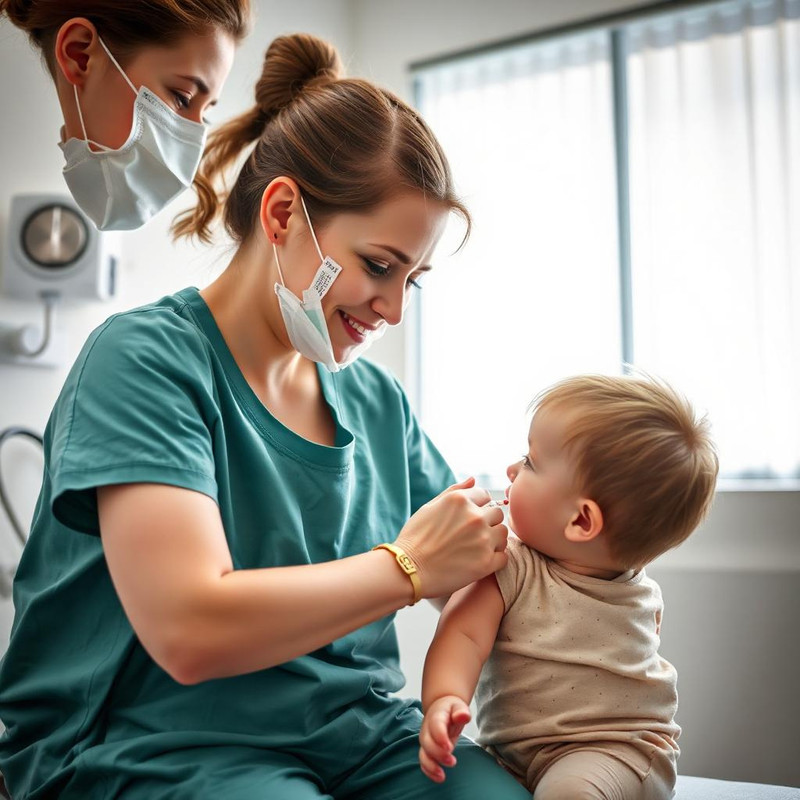MMR Vaccination
The measles mumps and rubella (MMR) vaccine
If you're aged 18 or over, you can still get free immunisation against measles, mumps and rubella. The vaccine is free for everyone born from 1 January 1969 onwards who hasn't already had two recorded doses.
The best protection against measles is achieved by receiving two doses of the combined measles, mumps, rubella (MMR) vaccine, which is routinely given to children at 15 months and four years of age.
It is also recommended that people get vaccinated before travelling overseas to protect themselves from mumps and to help prevent outbreaks in New Zealand.
The National Immunisation Schedule offers a series of vaccines free to babies, children, adolescents and adults. Visit the Ministry of Health website to find out what vaccines are on the schedule and when they are given.
Children have their own document to keep a record of these injections. Under the age of five, this is usually their Well Child/Tamariki Ora My Health Book. The immunisation record may need to be shown, for example, when starting school or early childcare. The staff will also record the immunisation details on New Zealand’s National Immunisation Register. This computerised information system holds details of all immunisations given to children here and will alert families when immunisations are due. Find out more on the Ministry of Health website.
I think I had at least one MMR shot but I’m not sure. What should I do?
If you're not sure, it's safer to get the MMR vaccine again to protect yourself against measles, mumps and rubella. You’ll need two doses in total, at least a month apart. There's no additional risk of having a third dose if you’re not sure whether you’ve already had two doses. Contact us to find out more.
Why immunise against measles, mumps and rubella?
Diseases like measles and mumps can make adults seriously ill. Many New Zealanders, mostly between the ages of 10 and 29, are at risk of catching measles in an outbreak. You need two doses of MMR vaccine to be best protected. Catching rubella when you’re pregnant can cause miscarriage or serious birth defects.
What is the risk of catching measles in New Zealand?
Measles is a highly contagious viral disease that occurs in children and adults. Symptoms include fever, cough, rash, runny nose, and inflamed eyes, while further health complications are quite common.
2019 had seen one of the largest recent outbreaks, with 2,191 confirmed cases of measles across New Zealand, the majority of which (1,734 cases) occurred in the Auckland region.
Measles is easily preventable. There is a free and effective vaccination programme in New Zealand. Even so, it is estimated that up to 400,000 New Zealanders are not fully vaccinated and are at risk. Anyone who has not been vaccinated, should see their doctor regarding a free vaccine.
What is the risk of catching mumps in New Zealand?
Mumps is a viral infection of the salivary glands that can cause one or both sides of the face to swell up. Other symptoms include fever, headache, and tiredness.
Mumps is easily prevented by a vaccination. The incidence of mumps has declined by more than 90% in New Zealand in recent decades following the introduction of a national vaccination programme.
Although about 20–30 cases of mumps usually occur each year in New Zealand, sudden increases in the number of cases, called outbreaks, occasionally occur. An outbreak of mumps in 2017 affected more than 900 people in Auckland.
Outbreaks generally affect people who have not been vaccinated and mainly arise in places where people are in close contact, such as childcare centres, schools, and university campuses.
Immunisations are given by a practice nurse or doctor at Dunedin South Medical Centre, having ensured beforehand that the person is not ill or suffering from allergies. Risks associated with immunisation are very rare.
Contact us via Manage My Health or by calling 03 455 4073.

 Patient Login
Patient Login
